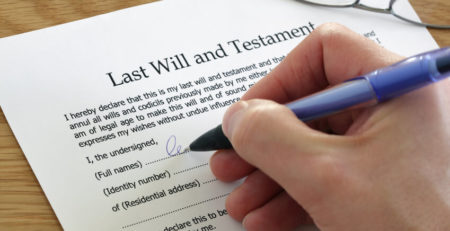What Are Lasting Powers Of Attorney?
The system of Lasting Powers of Attorney (LPA) enables you to appoint Attorneys to make decisions for you if you are unable to make decisions for yourself. Here’s just a few of the areas our Wills, Trusts & Probate services cover:
Lasting Powers Of Attorney –
Guaranteed Peace Of Mind
We all hope that we can continue to manage our own affairs throughout the whole of our lives, and most of us are fortunate to do so.
However, we should also take precautions in case we find ourselves needing help in future.
By putting appropriate arrangements in place while you are still in good health, you can choose who makes decisions for you if you can no longer make decisions for yourself.
You can also potentially avoid the need for costly and complicated dealings with the Court of Protection.
The System Of Lasting Powers Of Attorney

The system of Lasting Powers of Attorney (LPA) enables you to appoint Attorneys to make decisions for you if you are unable to make decisions for yourself. There are two types of LPA:
The Property & Financial LPA will enable your attorneys to make decisions about managing your money and property, paying bills, buying and selling property or even running a business.
The Health & Welfare LPA gives your attorneys the ability to make decisions about your day to day living (including where you live, who you see, what you wear, what you eat, etc) and what care or medical treatment you receive.
What Our Clients Say
Read over the thoughts of our many happy clients, and see for yourself the great working relationship we have with our people.
“We were struck by the team’s ability to explain the complexities of a Will, and their level of customer service which we thought was excellent. Thank you so much.”
Meet Our Wills, Trusts & Probate Team
Get In Touch To Discuss Lasting Powers Of Attorney
Contact us now, and receive accurate & actionable advice, guidance and support for Lasting Powers of Attorney.
Give yourself some much needed peace of mind today.
Contact us today or visit a
local branch
Latest News
Browse the Tinsdills blog for news, views, guides and much more from the worlds of Law and Tinsdills.
The Most Popular Questions For Lasting Powers of Attorney
It is a legal document by which a person appoints someone else (Attorney(s)) to be able to make decisions on their behalf in relation to property and financial matters and/or health and welfare matters.
We all hope to live out our years in reasonable health and maintaining our mental faculties. However, we also have to be realistic and accept that this doesn’t always happen. Should you suffer ill health or incapacity in the future, having LPAs in place will be of massive benefit to you and your loved ones.
If you don’t have LPAs in place and you need help with making decisions in the future, the only alternative is to apply to the Court of Protection for a deputy to be appointed to manage your affairs and make decisions for you. Not only is this process very long-winded, complex and costly, but also you will not be choosing who makes decisions for you.
There are two types of LPA, one for property and financial decisions, and another for health and welfare
decisions. The sort of decisions that might need to be made include:
1. Property and finance
– Managing your property
– Managing your income and liabilities
– Making investment decisions
2. Health and welfare
– Care decisions
– Medical treatment decisions
– Where you live
– Your daily routine
We can help you with that. There are a lot of different things to consider to set up LPAs correctly and to ensure that they operate in your best interests. You need to decide who you are appointing, how your Attorney is to make decisions if you are appointing more than one, whether to appoint replacement Attorneys & how they can act, when the LPA can be used, and any instructions or guidance you wish to give. You will then need to get the LPA documents drawn up, signed, witnessed and someone appropriately qualified will need to provide a certificate to confirm your capacity to set up the LPAs. In order for the LPAs to be fully effective they will also need to be registered at the Office of the Public Guardian. We will guide you through the process from start to finish.
First of all, your LPAs must have been registered at the Office of the Public Guardian before they can be used. We recommend that you register your LPAs as soon as they are set up, so as to avoid problems and delays at a later date. What your Attorneys will need to do will depend upon your individual circumstances and affairs. We can advise your attorneys on their duties and obligations, as well as the practical steps that they will need to take to manage your affairs, make decisions on your behalf and act in your best interests.
Even if a Lasting Power of Attorney has been registered at the Office of the Public Guardian it can still be amended, assuming the person who created the Lasting Power of Attorney still has mental capacity.
An Enduring Power of Attorney would have been prepared prior to 1 October 2007. Since then, the Lasting Powers of Attorney have replaced Enduring Powers of Attorney. Despite the introduction of Lasting Powers of Attorney, Enduring Powers of Attorney created prior to 1 October 2007 will still remain valid. Unlike an Enduring Power of Attorney (which is limited to decisions on the management of a person’s property and financial affairs), you can create separate Lasting Powers of Attorney which cover both the management of your property and financial affairs and for health and welfare decisions.












